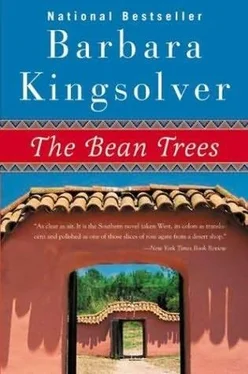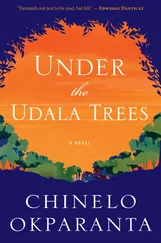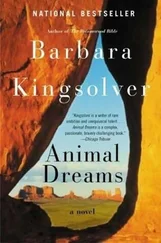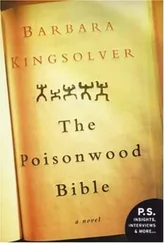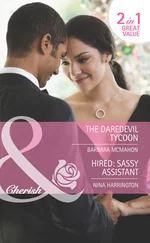“You want more juice, don’t you?” Mattie said to Turtle in a grownup-to-baby voice. “It’s a good thing I brought the whole bottle down in the first place.”
“Please don’t go out of your way,” I said. “We’ve put you out enough already. I have to tell you the truth, I can’t even afford to buy one tire right now, much less two. Not for a while, anyway, until I find work and a place for us to live.” I picked up Turtle but she went on banging the cup against my shoulder.
“Why, honey, don’t feel bad. I wasn’t trying to make a sale. I just thought you two needed some cheering up.” She pried the cup out of Turtle’s hand and refilled it. The top snapped right off. I hadn’t thought of that.
“You must have grandbabies around,” I said.
“Mmm-hmmm. Something like that.” She handed the cup back to Turtle and she sucked on it hard, making a noise like a pond frog. I wondered what, exactly, could be “something like” grandbabies.
“It’s so dry out here kids will dehydrate real fast,” Mattie told me. “They’ll just dry right up on you. You have to watch out for that.”
“Oh, right,” I said. I wondered how many other things were lurking around waiting to take a child’s life when you weren’t paying attention. I was useless. I was crazy to think I was doing this child a favor by whisking her away from the Cherokee Nation. Now she would probably end up mummified in Arizona.
“What kind of work you looking for?” Mattie rinsed the coffee cups and set them upside down on a shelf. A calendar above the shelf showed a bare-chested man in a feather headdress and heavy gold arm bracelets carrying a woman who looked dead or passed out.
“Anything, really. I have experience in house-cleaning, x-rays, urine tests, and red blood counts. And picking bugs off bean vines.”
Mattie laughed. “That’s a peculiar resume.”
“I guess I’ve had a peculiar life,” I said. It was hot, Turtle was spilling or spitting juice down my shoulder blade, and I was getting more depressed by the minute. “I guess you don’t have bean vines around here,” I said. “That kind of limits my career options.”
“Well, heck yes, girl, we’ve got bean vines!” Mattie said. “Even purple ones. Did you ever see purple beans?”
“Not that were alive,” I said.
“Come on back here and let me show you something.”
We went through the door at the back, which led through a little room jam-packed with stuff. There was a desk covered with papers, and all around against the walls there were waist-high stacks of old National Geographics and Popular Mechanics and something called The Beacon, which showed Jesus in long, swirling robes floating above a lighthouse. Behind the desk there was a staircase and another door that led out the back. I could hear someone thumping around overhead in stocking feet.
Outside was a bright, wild wonderland of flowers and vegetables and auto parts. Heads of cabbage and lettuce sprouted out of old tires. An entire rusted-out Thunderbird, minus the wheels, had nasturtiums blooming out the windows like Mama’s hen-and-chicks pot on the front porch at home. A kind of teepee frame made of CB antennas was all overgrown with cherry-tomato vines.
“Can you believe tomatoes on the second of January?” Mattie asked. I told her no, that I couldn’t. Frankly that was only the beginning of what I couldn’t believe. Mattie’s backyard looked like the place where old cars die and go to heaven.
“Usually we’ll get a killing frost by Thanksgiving, but this year it’s stayed warm. The beans and tomatoes just won’t quit. Here, doll, bite down, don’t swallow it whole.” She handed me a little tomato.
“Okay,” I said, before I realized she had popped one into Turtle’s mouth, and was talking to her. “It hailed this morning,” I reminded Mattie. “We just about froze to death for a few minutes there.”
“Oh, did it? Whereabouts?”
“On the freeway. About five blocks from here.”
“It didn’t get here; we just had rain. Hail might have got the tomatoes. Sometimes it will. Here’s the beans I was telling you about.”
Sure enough, they were one hundred percent purple: stems, leaves, flowers and pods.
“Gosh,” I said.
“The Chinese lady next door gave them to me.” She waved toward a corrugated tin fence that I hadn’t even noticed before. It was covered with vines, and the crazy-quilt garden kept right on going on the other side, except without the car parts. The purple beans appeared to go trooping on down the block, climbing over anything in their path.
“They’re originally from seeds she brought over with her in nineteen-ought-seven,” Mattie told me. “Can you picture that? Keeping the same beans going all these years?”
I said I could. I could picture these beans marching right over the Pacific Ocean, starting from somebody’s garden in China and ending up right here.
Mattie’s place seemed homey enough, but living in the hustle-bustle of downtown Tucson was like moving to a foreign country I’d never heard of. Or a foreign decade. When I’d crossed into Rocky Mountain Time, I had set my watch back two hours and got thrown into the future.
It’s hard to explain how this felt. I went to high school in the seventies, but you have to understand that in Pittman County it may as well have been the fifties. Pittman was twenty years behind the nation in practically every way you can think of, except the rate of teenage pregnancies. For instance, we were the last place in the country to get the dial system. Up until 1973 you just picked up the receiver and said, Marge, get me my Uncle Roscoe, or whoever. The telephone office was on the third floor of the Courthouse, and the operators could see everything around Main Street square including the bank, the drugstore, and Dr. Finchler’s office. She would tell you if his car was there or not.
In Tucson, it was clear that there was nobody overlooking us all. We would just have to find our own way.
Turtle and I took up residence in the Hotel Republic, which rented by the week and was within walking distance of Jesus Is Lord’s. Mattie said it would be all right to leave my car there for the time being. This was kind of her, although I had visions of turnips growing out of it if I didn’t get it in running order soon.
Life in the Republic was nothing like life at the Broken Arrow, where the only thing to remind you you weren’t dead was the constant bickering between old Mrs. Hoge and Irene. Downtown Tucson was lively, with secretaries clicking down the sidewalks in high-heeled sandals, and banker and lawyer types puffy-necked in their ties, and in the evenings, prostitutes in get-ups you wouldn’t believe. There was one who hung out near the Republic who wore a miniskirt that looked like Reynolds Wrap and almost every day a new type of stockings: fishnets in all different colors, and one pair with actual little bows running down the backs. Her name was Cheryl.
There was also a type of person who lived downtown full time, not in the Republic but in the bus station or on the sidewalk around the Red Cross plasma center. These people slept in their clothes. I know that living in the Republic only put me a few flights of stairs above such people, but at least I did sleep in pajamas.
And then there was this other group. These people did not seem to be broke, but they wore the kinds of clothes Mama’s big-house ladies used to give away but you would rather go naked than wear to school. Poodle skirts and things of that kind. Standing in line at the lunch counters and coffee-shops they would rub the backs of each other’s necks and say, “You’re holding a lot of tension here.” They mainly didn’t live downtown but had studios and galleries in empty storefronts that had once been J. C. Penney’s and so forth. Some of these still had the old signs on the faces of the brick buildings.
Читать дальше
